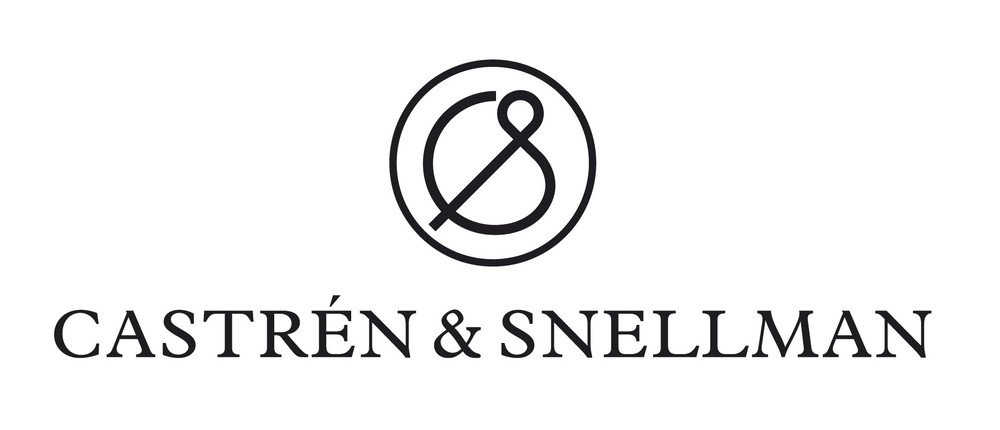Event Report
The evening opened with an introduction from Carola Lindholm, M&A partner and chair of the board at Castrén & Snellman, who charted the vital role of lawyers amid the triple threat of climate change, biodiversity loss, and air pollution, particularly as global inequality rises. Noting how the EU Green Deal has set its sights on building an environmentally efficient and inclusive economy, and that companies are essential actors in enabling a sustainable future, lawyers are essential in setting the bar for corporate sustainability. Thus, coming together to promote ESG literacy within the legal sector is a must.
After her insightful opening, Lindholm handed the floor over to Harry Hyde, Senior Researcher with the Legal 500’s Global Green Guide. He reflected on the privileged role of the Green Guide to be able to explore the impactful and pioneering engagement of the Finnish and Nordic legal sector concerning sustainability, the net-zero transition, and ESG, but emphasised how collaboration and dialogue will be vital to deliver on change and help maximise the opportunities within a new low-carbon economy.
Castrén & Snellman’s ESG partner Anna Kuusniemi-Laine was then invited on stage to introduce the first panel, which would explore corporate sustainability due diligence as a legal requirement and what will be required from legal teams in the future. She offered the keen insight that the difficulties in approving the EU’s new Corporate Sustainability Due Diligence Directive (CSDDD) highlights its importance as well as the depth of changes which will be required as companies become accountable for their sustainability-related impacts.
Lia Heasman, ESG counsel at Castrén & Snellman, then provided the audience a cogent introduction to the rapidly evolving CSDDD landscape. Heasman discussed how reporting requirements have shifted from voluntary soft law applicable to certain aspects of ESG, to now being a comprehensive and mandatory evaluation of environmental- and human rights-related impacts across a company’s operations and value chain. Moreover, going beyond mere reporting and bringing legal questions to the heart of strategy, companies are now required to develop and implement a transition plan which is aligned with the European climate neutrality goal and the 1.5℃ pathway. Highlighting the importance of following best legal practice and fully integrating sustainability within corporate performance, Heasman explored how sanctions and the potential to be held liable for environmental damage are crucial risks at the heart of CSDDD.
Moderating the session, Kuusniemi-Laine questioned the panel on how their climate transition plans have been impacted by CSDDD. Katriina Vainio, EVP and group general counsel at Vaisala provided an important perspective on the challenges, noting how, in businesses where climate change has become the core of business strategy and where the planet has become their key purpose, legal teams must be able to both measure their CO2 footprint decrease and also account for the positive handprint that they are making throughout their value chains.
Considering how prepared companies are for these challenging requirements, Kari Hietanen, executive vice president of corporate relations & legal affairs at Wärtsilä, offered the best practice discovered along his legal sustainability journey, that a gap analysis is essential both to gain a complete picture of what sustainability means to your business and to gain an impression of how legal and sustainability teams can best collaborate within an organisation to effect meaningful change. From this well-considered starting point, in-house counsel is better placed to implement impactful changes and engage with their value chain to understand the drivers both suppliers and end-users are witnessing. Most importantly, in-house lawyers should shift their awareness, and consequently apply their talent and insight, toward environmental sustainability and human rights concerns, which are emerging as key battlegrounds for general counsel.
Anne Simolinna, head of sustainability risks and M&A at Neste, reflected on this greater synergy between legal and sustainability teams. Companies have been both reporting and acting responsibly for years, but CSRD has brought a new level of internal cooperation that is encouraging legal teams to more broadly interact with new areas of the business. Reflecting on how this synergy now pervades the corporate climate and is so crucial to how modern players do business, Heasman concurred and explained how, in 2024, there can be no company without wholesale sustainability buy-in.
The panel ended with a joint reflection on the importance of new tools in solving legal challenges. Chief among these, to Simolinna, is systemic action, whereby through collaboration among leading companies you can create a climate of synchronisation. Hietanen noted how, through Wärtsilä’s value chain, there must be green buy-in at every link – from material, to processing, to transport, to use-case, to consumer – otherwise we cannot drive green change. Vainio concluded by looking optimistically at the potential for the legal sector to continue its collaboration with consulting and business teams to continue to drive change.
After a brief coffee break, the audience returned to the second panel of the evening, which explored how to combat greenwashing while avoiding greenhushing in the new legislative environment. To introduce the audience to the topic, Castrén & Snellman’s IP and marketing law counsel Hilma-Karoliina Rozell provided an incisive summary. Rozell explored an all-encompassing definition of greenwashing, as the manner in which a company overstates, is vague about, or misleads consumers on their ESG-related profile. Against this background, environmental and sustainability claims must be based on sound, scientific, and provable data, providing an accountable framework so as to pursue Europe’s climate neutrality goals. Demonstrating how highly important green claims will be to businesses, Rozell noted how it is not just that CSDDD will prohibit vague environmental claims without proven evidence, but also that green products and environmental aspects are a growing influence for consumers’ purchasing decisions.
Tina Orre, IP counsel at Castrén & Snellman, opened the panel’s discussion by relaying fears witnessed in the business community, suggesting that certain companies are struggling to navigate what determines acceptable green claims within this fast-moving legislative environment and are occasionally prone to ‘hushing’ their sustainability credentials.
Sanna Pietiläinen, director of responsible investment at eQ Asset Management, disarmed these fears, suggesting that, when interacting with investment targets, new regulation has been received well and that companies are not overly prone to greenhushing. Instead, most companies desire to be involved in the low-carbon transition and will have introduced the right operations in order to cope with increasing green claims legislation and the growing consumer demand. Her examples suggested how private capital can help bring companies along on their sustainability journey: asset managers and investors are historically keen on transparency and preventing greenwashing, having experience with the EU SFDR and Taxonomy, so are well-placed to inject sustainability considerations into the operations of smaller target companies.
Using a veracious approach to green claims as a method to bring the business community along on the sustainability journey was a key topic too for Hanna Hiekkamies, VP of group sustainability at Valio. Hiekkamies relayed how Valio’s best practice – of basing green claims off a data-driven emissions baseline, a Carbon Trust-verified footprint reduction programme, and Science Based Targets Initiative-approved climate targets – has helped foster accuracy and transparency. Similarly, by injecting this data-driven approach throughout your supply chain, you can help bring smaller actors within your supply chain along, including thousands of their dairy farm suppliers.
Questioned on the difficulty of substantiating and verifying green claims, Suvi-Tuulia Raami, senior legal counsel at Fazer, reiterated the importance of starting from a data-driven perspective, having dedicated stewardship of sustainability obligations throughout the organisation, and gaining a committed buy-in from the board. Echoing earlier points on the need for internal collaboration, by having a strongly integrated sustainability strategy and working as a group toward a common target, you can best adapt to the time and resource requirements of new regulatory changes. Raami concluded on the necessity of accurate green claims: within the green transition, consumers need to make more informed decisions, so when companies help introduce a more sustainable product, good actions must be able to be communicated. Indeed, the legislation does not prohibit green communication or marketing; rather legal teams need to find ways to do it properly and help make sustainability simple for consumers.
After concluding words from the Legal 500 by Harry Hyde and from Castrén & Snellman by Anna Kuusniemi-Laine, attendees carried on the discussion at a drinks reception overlooking Helsinki, sharing their own best practices, perspectives, and experiences.

